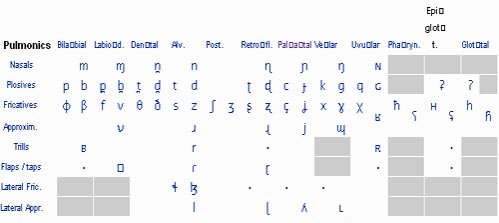 |
 |
 |
| Home | More Articles | Join as a Member! | Post Your Job - Free! | All Translation Agencies |
|
|||||||
|
|
Epiglottal consonant
An epiglottal consonant is a consonant that is articulated with the aryepiglottic folds (see larynx) against the epiglottis. They are occasionally called aryepiglottal consonants. The epiglottal consonants identified by the International Phonetic Alphabet are:
Epiglottals are not known from many languages. However, this may partially be an effect of the difficulty European language-speaking linguists have in recognizing them. On several occasions, when supposedly pharyngeal consonants were actually measured, they turned out to be epiglottals. This was the case for Dahalo, for example. Epiglottals are primarily known from the Mideast (in the Semitic languages) and from British Columbia ("pharyngeal trills" in northern Haida), but may occur elsewhere. It is likely that several of the Salish or Wakashan languages of British Columbia reported to have "pharyngeals" actually have epiglottals, and the same may be true of some of the languages of the Caucasus. Recently, a possible new place of articulation, epiglotto-pharyngeal, was reported. See alsoReferences

This table contains phonetic
information in IPA,
which may not display correctly in some browsers.
Published - November 2008 Information from Wikipedia
is available under the terms of the GNU Free Documentation
License
E-mail this article to your colleague! Need more translation jobs? Click here! Translation agencies are welcome to register here - Free! Freelance translators are welcome to register here - Free! |
|
||||||||||||||||||||||||||||||||||||||||||
|
Legal Disclaimer Site Map |